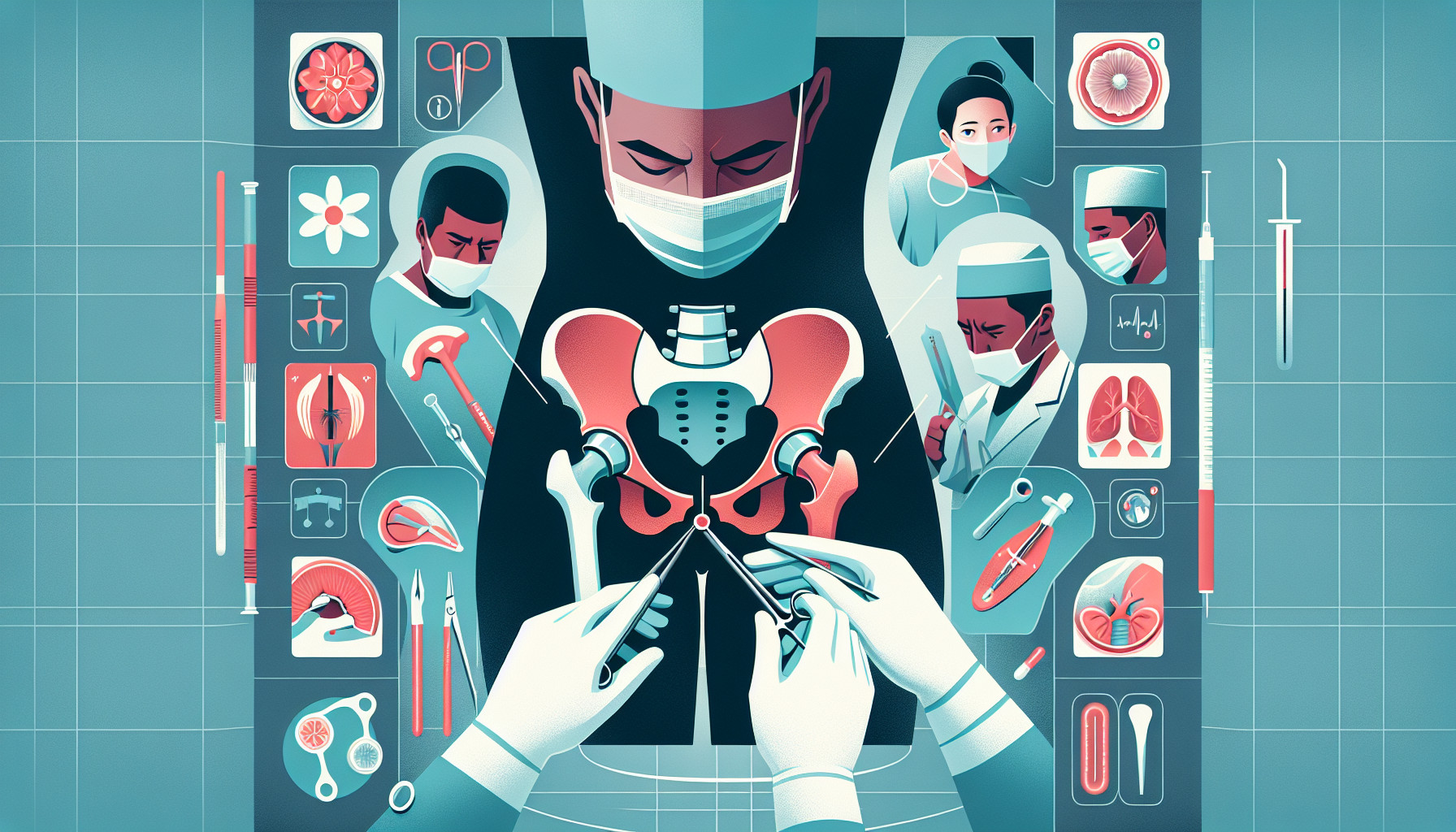Our Summary
This study aims to understand how accurately dogs are positioned before they undergo a total hip replacement surgery, and whether factors like the surgeon’s experience level or the dog’s body condition affect this accuracy. The study involved 6 experienced hip replacement surgeons and 11 vets without such experience, and they practiced positioning 4 dead dogs (2 of them being lean and 2 being overweight) for surgery using a special vacuum bean bag.
Results showed that the average error in positioning the dogs was less than 4 degrees, regardless of whether the vet was experienced or not. There was also no difference found between the accuracy when positioning lean dogs compared to overweight ones.
In conclusion, the study found that vets can generally position dogs quite precisely for hip replacement surgery by hand, and this doesn’t seem to improve with more experience or when the dog is leaner. It also found that serious positioning errors of more than 10 degrees are rare, happening less than 10% of the time.
So, for vets doing hip replacement surgeries on dogs, it seems that more experience or a leaner dog doesn’t necessarily improve the accuracy of positioning the patient.
FAQs
- Does the level of the surgeon’s experience affect the accuracy of positioning dogs for hip replacement surgery?
- Does the body condition of the dog, whether lean or overweight, impact the accuracy of positioning for hip replacement surgery?
- How often do serious positioning errors of more than 10 degrees occur in positioning dogs for hip replacement surgery?
Doctor’s Tip
Instead, focus on consistently practicing and paying attention to detail during the positioning process to ensure the best outcomes for the surgery. It’s also important to communicate with the surgical team and follow proper protocols to minimize the risk of positioning errors.
Suitable For
Typically, patients who are recommended for hip replacement surgery are those who are experiencing severe hip pain, stiffness, and limited mobility due to conditions such as osteoarthritis, rheumatoid arthritis, avascular necrosis, or hip fractures. Patients who have tried conservative treatments such as medications, physical therapy, and lifestyle modifications without success may also be recommended for hip replacement surgery. Additionally, patients who have a high risk of complications from surgery, such as those with obesity, diabetes, or cardiovascular disease, may not be good candidates for hip replacement surgery. Each patient’s individual health status and medical history will be evaluated by their healthcare provider to determine if hip replacement surgery is the best option for them.
Timeline
Before hip replacement surgery, a patient typically experiences chronic hip pain, stiffness, and limited mobility. They may have tried various conservative treatments such as physical therapy, medications, and injections with little relief. Eventually, they decide to undergo hip replacement surgery to improve their quality of life.
After the surgery, the patient will go through a period of recovery and rehabilitation. They will initially experience pain and discomfort at the surgical site, but this will gradually improve as they follow their post-operative care plan. Physical therapy will be an important part of their recovery process, helping them regain strength, flexibility, and function in their hip joint.
Over time, the patient will notice significant improvements in their hip pain, mobility, and overall quality of life. They will be able to return to their daily activities with less pain and greater ease. With proper care and maintenance, a hip replacement can last for many years, providing long-lasting relief and improved function for the patient.
What to Ask Your Doctor
Some questions a patient should ask their doctor about hip replacement surgery include:
- What are the potential risks and complications associated with hip replacement surgery?
- What type of hip replacement procedure will be performed and why is this the best option for me?
- What is the expected recovery time and rehabilitation process after surgery?
- How long can I expect the hip replacement to last and what are the long-term outcomes?
- What are the alternatives to hip replacement surgery and why is surgery recommended in my case?
- Are there any specific pre-operative preparations or precautions I should take before the surgery?
- How many hip replacement surgeries have you performed and what is your success rate?
- Will I need any special equipment or assistance at home after surgery?
- What type of anesthesia will be used during the surgery and what are the potential side effects?
- How soon can I expect to return to normal activities and what restrictions will I have after surgery?
Reference
Authors: Tidwell SJ, Barnett RJ, Marcellin-Little DJ, Peck JN. Journal: Am J Vet Res. 2025 Mar 21;86(6):ajvr.24.12.0401. doi: 10.2460/ajvr.24.12.0401. Print 2025 Jun 1. PMID: 40118028
